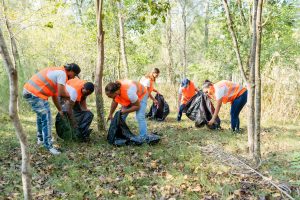Serving with Purpose: Diverse Examples of Volunteer Experiences


Volunteering is a multifaceted activity that spans various sectors and serves multiple purposes, from enhancing community well-being to promoting personal growth and learning. Individuals looking to volunteer can choose from a broad array of opportunities, each tailored to different interests, skills, and community needs. Understanding the scope of volunteer experiences available can help prospective volunteers find their niche and make meaningful contributions. Below, we explore a variety of volunteer experiences across different fields, illustrating the vast possibilities that volunteering encompasses.
What are Examples of Volunteer Experience?
1. Community Health Initiatives
Volunteers are critical in community health, offering free medical check-ups, health education sessions, and support for disabled or elderly community members. Medical professionals might volunteer to provide basic healthcare in underserved areas or support mental health initiatives by offering counseling sessions. Non-medical volunteers can assist by organizing health fairs, promoting health awareness campaigns, or managing logistics at local clinics.
2. Environmental Conservation
For those passionate about the environment, volunteer opportunities abound in conservation efforts. This can include activities like tree planting, wildlife habitat restoration, beach clean-ups, or participating in data collection for research on biodiversity. Environmental volunteering helps protect and restore natural habitats and educates the volunteer about sustainability practices and ecological responsibility.
3. Education and Tutoring
Education volunteers contribute to community learning by tutoring students, teaching language classes, or conducting workshops on various subjects such as financial literacy, computer skills, or art. Volunteering is essential in communities with limited educational resources and can be incredibly rewarding as volunteers watch their students grow and learn.
4. Disaster Relief and Recovery
Volunteers are crucial to relief efforts in natural disasters or emergencies. They may be involved in providing immediate assistance, such as distributing food and water, setting up shelters, and offering first aid. Post-disaster volunteers help with rebuilding efforts, from clearing debris to reconstructing homes and infrastructure. This work requires resilience and a strong commitment to helping communities in crisis.
5. Animal Welfare
Animal lovers can volunteer with shelters, rescues, or wildlife rehabilitation centers. Tasks might include feeding animals, cleaning habitats, assisting in medical treatment, and helping with adoption events. This type of volunteering not only aids in the direct care of animals but also supports broader efforts to educate the public about animal welfare issues.
6. Arts and Culture
Volunteering in the arts can involve assisting at local theaters, museums, or community arts centers. Volunteers might help organize exhibitions, manage events, conduct tours, or run educational programs for children. This allows volunteers to support cultural enrichment in the community while indulging their passion for the arts.
7. Sports and Recreation
Sports enthusiasts can volunteer to coach community sports teams, organize sporting events, or lead fitness classes for various age groups. This volunteer work promotes healthy lifestyles, teaches teamwork and discipline, and provides a fun outlet for community members to gather and interact.
8. Senior Citizen Engagement
Volunteers can significantly impact senior citizens’ lives by engaging in activities such as visiting nursing homes, conducting social gatherings, or teaching skills like using technology to stay connected with loved ones. Volunteering helps combat seniors’ loneliness and provides them with valuable learning and socialization opportunities.
9. Human Rights Advocacy
Those interested in human rights can volunteer with organizations focusing on immigration, women’s rights, and social justice. This can involve legal aid, educational programs, advocacy campaigns, or direct support services for affected individuals. Volunteers gain a deep understanding of the challenges facing marginalized communities and the legal and social frameworks that impact these issues.
10. Food Security
Volunteering to combat food insecurity might involve working at food banks, organizing food drives, or helping at community gardens. These activities ensure that all community members have access to nutritious food and promote awareness of food sustainability practices.
Volunteer experiences are as diverse as the needs they address and the individuals who participate in them. Each opportunity offers unique challenges and rewards, allowing volunteers to find a role that best suits their abilities and passions. Whether providing care, teaching skills, restoring the environment, or advocating for rights, volunteering empowers individuals to contribute positively to their communities while enriching their lives. By exploring these varied opportunities, prospective volunteers can find meaningful ways to engage and make a difference.
